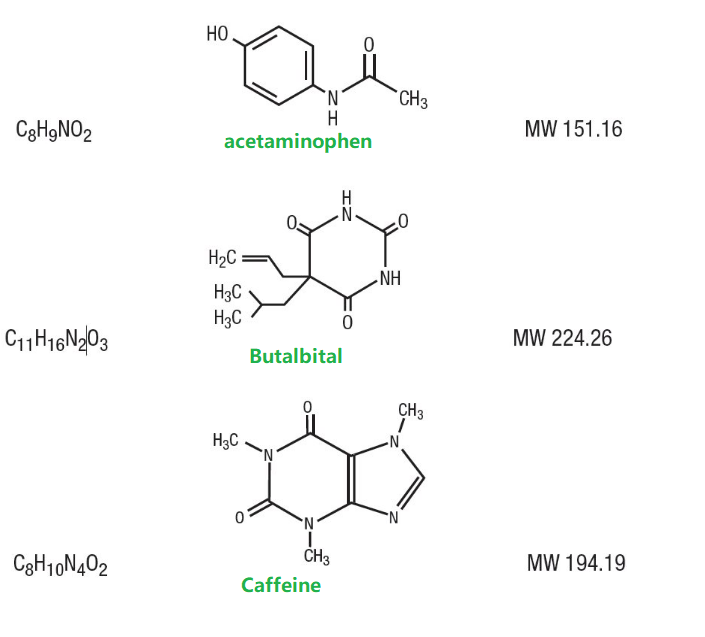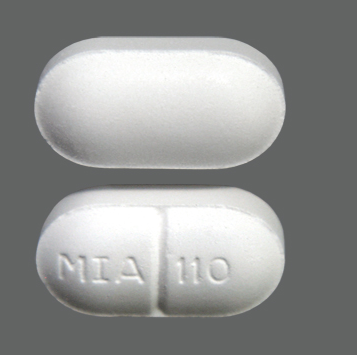If you’re struggling with constant All kinds of Headache, your doctor might prescribe you a medication called Fioricet.
This proprietary, brand name medication is actually a combination of other medications. The basic component is, surprisingly enough, acetaminophen, a common pain relieving medication that you can easily get over the counter. Since it’s mixed with another powerful medication, though, it’s something that you can only get by prescription.

The second ingredient in this medication is Butalbital, which is a barbiturate, commonly used to relieve muscle tension. Since many of the worst All kinds of Headache that you can get are actually caused by tense muscles in the neck and shoulders, this is a very helpful addition to a very helpful pain killer.
The formulation of this medication is accentuated with a dose of caffeine. Although caffeine doesn’t necessarily stop All kinds of Headache, it does have an effect on the central nervous system. It stimulates the veins and relaxes them, allowing blood to flow more freely. This, in and of itself, can have a mild pain relieving effect on All kinds of Headache. However, it’s mainly useful because it can help the other two drugs to be delivered to the body’s various systems more easily.
Fioricet is a medication that you need a prescription for, but you don’t necessarily have to buy it through traditional pharmacies. These days, online pharmacies are very popular for buying medications like these. It’s easy because you don’t have to actually go anywhere to get your medications. They can be delivered right to your door for a minimal cost.
Before you purchase Fioricet online, though, make sure that you’re getting it from a reputable online drugstore where you are assured of the quality of your medication and the quantity you’re going to get.
One of the main advantages of buying online is that you can save money, too, but make sure you’re getting what you pay for with this medication.
Many people who purchase Fioricet online find that they enjoy the utter privacy of it. No one needs to know that you’re suffering from All kinds of Headache, but you can get relief easily and quickly by having your medication delivered to your door. One you start taking this medication, you’ll see just how quickly and effectively it works on All kinds of Headache of all sorts, and you’ll be able to get rid of your All kinds of Headache more efficiently than ever before.
Before taking this medicine
Do not use Fioricet if you have taken an MAO inhibitor in the past 14 days. A dangerous drug interaction could occur. MAO inhibitors include isocarboxazid, linezolid, phenelzine, rasagiline, selegiline, and tranylcypromine.
You should not use Fioricet if you are allergic to acetaminophen, butalbital, or caffeine, if you have porphyria, or if you have recently used alcohol, sedatives, tranquilizers, or other narcotic medications.
To make sure Fioricet is safe for you, tell your doctor if you have:
- liver disease, cirrhosis, a history of alcoholism or drug addiction, or if you drink more than 3 alcoholic beverages per day;
- kidney disease;
- asthma, sleep apnea, or other breathing disorder;
- stomach ulcer or bleeding;
- a history of skin rash caused by any medication;
- a history of mental illness or suicidal thoughts; or
- if you use medicine to prevent blood clots.
It is not known whether Fioricet will harm an unborn baby. If you use butalbital while you are pregnant, your baby could become dependent on the drug. This can cause life-threatening withdrawal symptoms in the baby after it is born. Babies born dependent on habit-forming medicine may need medical treatment for several weeks. Tell your doctor if you are pregnant or plan to become pregnant.
What should I avoid while taking Fioricet?
This medication can cause side effects that may impair your thinking or reactions. Be careful if you drive or do anything that requires you to be awake and alert.
Avoid drinking alcohol. It may increase your risk of liver damage while taking acetaminophen.
Ask a doctor or pharmacist before using any other cold, allergy, pain, or sleep medication. Acetaminophen (sometimes abbreviated as APAP) is contained in many combination medicines. Taking certain products together can cause you to get too much acetaminophen which can lead to a fatal overdose. Check the label to see if a medicine contains acetaminophen or APAP.
While you are taking this medication, avoid taking diet pills, caffeine pills, or other stimulants (such as ADHD medications) without your doctor’s advice.
Abuse and Dependence
Butalbital
Barbiturates may be habit-forming: Tolerance, psychological dependence, and physical dependence may occur especially following prolonged use of high doses of barbiturates. The average daily dose for the barbiturate addict is usually about 1500 mg. As tolerance to barbiturates develops, the amount needed to maintain the same level of intoxication increases; tolerance to a fatal dosage, however, does not increase more than two-fold. As this occurs, the margin between an intoxication dosage and fatal dosage becomes smaller. The lethal dose of a barbiturate is far less if alcohol is also ingested. Major withdrawal symptoms (convulsions and delirium) may occur within 16 hours and last up to 5 days after abrupt cessation of these drugs. Intensity of withdrawal symptoms gradually declines over a period of approximately 15 days. Treatment of barbiturate dependence consists of cautious and gradual withdrawal of the drug. Barbiturate-dependent patients can be withdrawn by using a number of different withdrawal regimens. One method involves initiating treatment at the patient’s regular dosage level and gradually decreasing the daily dosage as tolerated by the patient.

Overdosage of Butalbital, Acetaminophen, and Caffeine
Following an acute overdosage of butalbital, acetaminophen, and caffeine, toxicity may result from the barbiturate or the acetaminophen. Toxicity due to caffeine is less likely, due to the relatively small amounts in this formulation.
Signs and Symptoms
Toxicity from barbiturate poisoning includes drowsiness, confusion, and coma; respiratory depression; hypotension; and hypovolemic shock.
In acetaminophen overdosage: dose-dependent, potentially fatal hepatic necrosis is the most serious adverse effect. Renal tubular necrosis, hypoglycemic coma, and coagulation defects may also occur. Early symptoms following a potentially hepatotoxic overdose may include: nausea, vomiting, diaphoresis, and general malaise. Clinical and laboratory evidence of hepatic toxicity may not be apparent until 48 to 72 hours post-ingestion.
Acute caffeine poisoning may cause insomnia, restlessness, tremor, and delirium, tachycardia and extrasystoles.
Treatment
A single or multiple drug overdose with this combination product is a potentially lethal polydrug overdose, and consultation with a regional poison control center is recommended. Immediate treatment includes support of cardiorespiratory function and measures to reduce drug absorption.
Oxygen, intravenous fluids, vasopressors, and other supportive measures should be employed as indicated. Assisted or controlled ventilation should also be considered.
Gastric decontamination with activated charcoal should be administered just prior to N-acetylcysteine (NAC) to decrease systemic absorption if acetaminophen ingestion is known or suspected to have occurred within a few hours of presentation. Serum acetaminophen levels should be obtained immediately if the patient presents 4 hours or more after ingestion to assess potential risk of hepatotoxicity; acetaminophen levels drawn less than 4 hours post-ingestion may be misleading. To obtain the best possible outcome, NAC should be administered as soon as possible where impending or evolving liver injury is suspected.
Intravenous NAC may be administered when circumstances preclude oral administration.
Vigorous supportive therapy is required in severe intoxication. Procedures to limit the continuing absorption of the drug must be readily performed since the hepatic injury is dose dependent and occurs early in the course of intoxication.